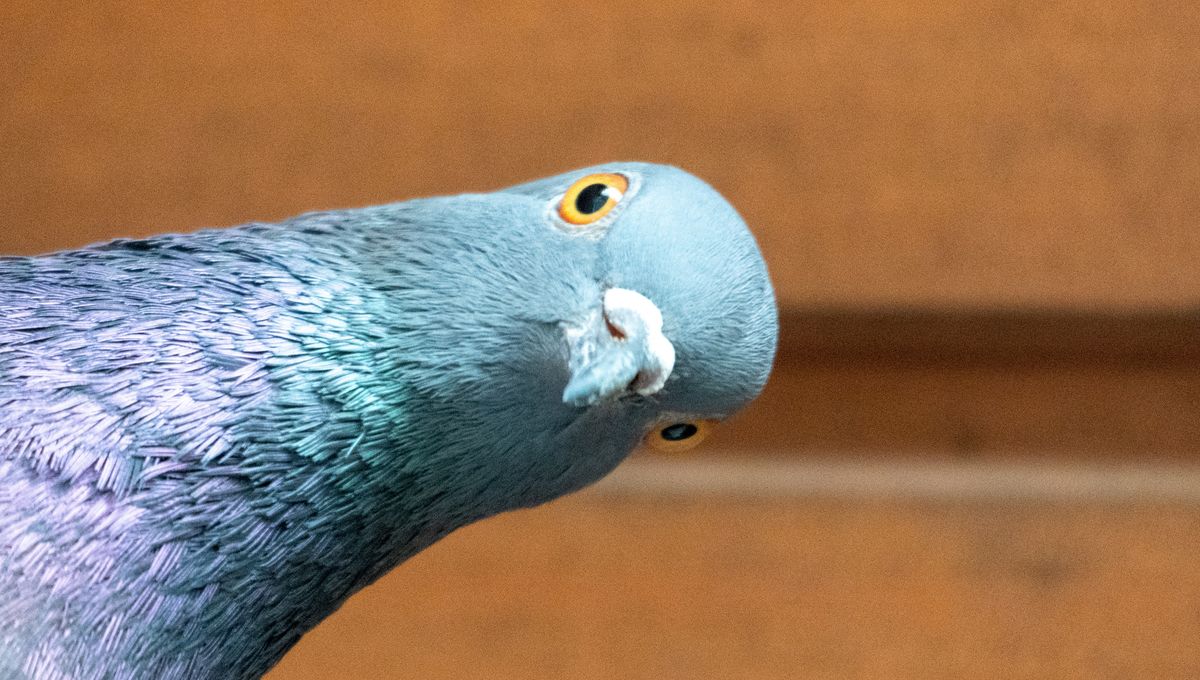
When you consider, say, a salmon, or a pigeon, your first thought is probably not “Wow, I bet that guy is great at quantum mechanics” – and yet, that’s precisely what the evidence suggests: that these animals, among others, exploit some of the most advanced science currently understood by humans in their everyday lives – and according to a new paper, they’re doing so in ways that push at the very limits of quantum physics.
ADVERTISEMENT GO AD FREE
“A large number of magnetic sensors, like superconducting quantum interference devices, optical pumping, and nitrogen vacancy magnetometers, were shown to satisfy the energy resolution limit,” explain the authors, physicists Iannis Kominis and Efthimis Gkoudinakis from the University of Crete, in their paper. “This bound implies a fundamental limitation as to what can be achieved in magnetic sensing.”
Basically, the performance of a magnetic sensor depends on three things: its volume, sensitivity, and the measurement time. The smaller the result, the more sensitive the magnet.
Sounds simple? Maybe – but these days, we can get pretty darn small. Go too far down in scale, and things start to get a bit wibbly – or, as physicists prefer to call it, quantum. It’s both a blessing and a curse in magnetometry: the minuscule scale cuts out much of the dimensional noise, and that’s allowed us to make huge leaps in how sensitive our sensors can be in recent years – but at the same time, it brings with it an intrinsic fragility. After all, famously, quantum states can be destroyed simply by looking at them the wrong way.
Even in the fuzzy, probabilistic world of quantum physics, though, there’s a limit on how small you can go. Both theoretically and, recently, experimentally, the limit for magnetic sensitivity is set at Planck’s constant – an infinitesimally small value at 6.62607015×10−34 Joule-seconds, and generally labeled ℏ.
“At the qualitative level, the closer the energy resolution is to ℏ, the more ‘quantum’ is the sensor,” the researchers write.
So, what does all this have to do with animal senses? Well, biologists have long known that many animals have the ability to sense magnetic fields – it’s how birds find their way home, how foxes find success in hunting, and how dogs know how to go doo-doo. They’re good at it too, to a level that scientists have found almost baffling – the Earth’s magnetic field is extremely weak, all things considered, and yet these critters can tap into it with an uncanny level of accuracy.
ADVERTISEMENT GO AD FREE
That means they must be operating some near-quantum-limit levels of magnetoreception – but just how near has so far remained a mystery. To be honest, we’re still not even sure how the animals do it at all: there are a few competing and probably non-mutually exclusive theories out there, and even they are light on specifics.
“During the last six decades scientists have considered several biophysical mechanisms explaining biological magnetoreception,” explains a statement from the University of Crete, but they “are not yet fully understood, and the relevant physical parameters [are] not precisely known.”
Kominis and Gkoudinakis, however, decided to work backwards to the answers. “since biological magnetometers abide by the laws of physics, and are thus expected to also satisfy the [energy resolution] bound, the bound is used to constrain those biophysical parameters,” says the statement.
The result? Not only are some of the proposed mechanisms for biological magnetoreception feasible, but they also would – theoretically, at least – be operating right at that quantum limit. It would be like watching a TV with Planck-length pixels – basically impossible to get any higher resolution. And it’s been inside fruit flies this whole time.
ADVERTISEMENT GO AD FREE
Still, we needn’t feel too bad about coming second to an insect. Now we’ve figured out how they do it, we might be able to improve on our own lab-based magnetic sensors, the researchers believe.
“If [scientists] want to make the most sensitive measurements, we have to go quantum,” Kominis told Physics magazine. “Mimicking biological magnetoreceptors can guide such quantum engineering.”
The paper is published in the journal PRX Life.
Source Link: Animals' Magnetic Senses Could Work At The Limit Of Quantum Possibility